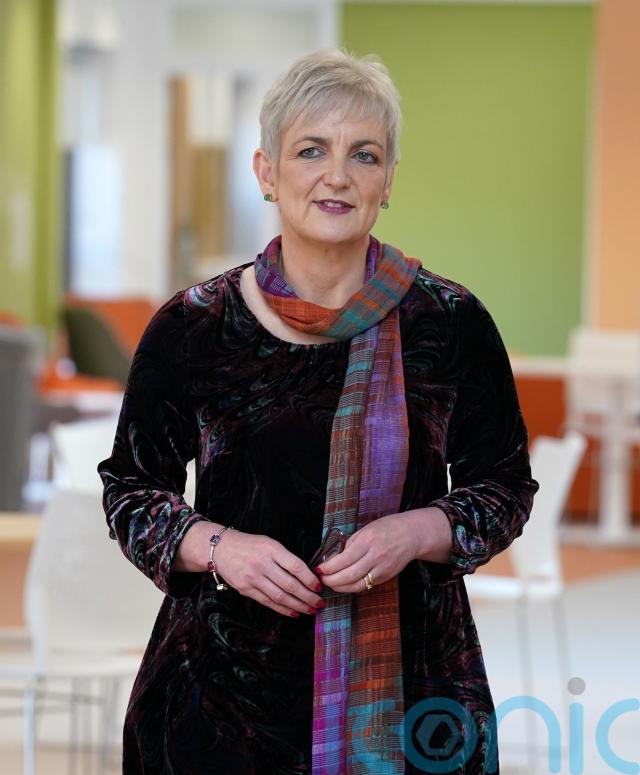
A new report has said the lives of Scottish prisoners have been put at risk as recommendations agreed upon more than three decades ago have still not been implemented.
The Scottish Human Rights Commission (SHRC) and the UK National Preventive Mechanism (NPM) released the joint report on Thursday, which looks at prisons and mental health settings in Scotland, with multiple areas of concern highlighted.
The areas include mental health, segregation and deaths in custody.
The report found 83% of previous recommendations given by human rights bodies to Scottish prisons have yet to be implemented, stating there has been little-to-no progress in the last decade.
Some 24 human rights recommendations showed little progress, with only five showing an acceptable level of progress, and not a single recommendation marked as complete.
The research found segregation or solitary confinement was still prevalent, with a failure to meet the minimum requirement of two hours of human contact a day.
It also said there is a lack of mental healthcare in prisons and no specialised high secure psychiatric unit for women prisoners in Scotland, resulting in women not getting access to mental healthcare or being transferred 300 miles to a facility in England.
It warned of gaps in the system for investigations of deaths in prisons, and that there is no independent system for investigating deaths of people detained in mental health settings in Scotland.
Speaking on BBC Good Morning Scotland (GMS) on Thursday morning, report author Cathy Asante said the Scottish Prison Service has acknowledged their recommendations, but said results are not happening quickly enough.
She said: “One of the things our report finds is there is acknowledgement of the issues, there’s commitment, but we’re not seeing enough action, we’re certainly not seeing swift enough action.
“And fundamentally, we’re not seeing the results change, so the actual outcomes for people who are in these situations are not materially changing and some of them are getting worse.
“The rate of deaths in Scotland’s prisons is still one of the highest in western Europe, so fundamentally we need to see the commitments and the words turned into action that changes the outcomes for people on the ground.”
Under human rights laws, absolute rights such as the right to life and protection from inhumane and degrading treatment must never be breached.
Shelley Gray, member of the SHRC, said: “Absolute rights are the most fundamental of human rights and there is no excuse for allowing these breaches or failing to act when these rights are at risk.
“The level of inaction and delay is no longer acceptable, and we want to see these important human rights concerns addressed by the Scottish Government with the urgency they deserve.”
Gail Donaghy lost her son, Conor McHugh, in 2020, two days before he was due to be released from an eight-month breach of the peace sentence at HMP Kilmarnock.
Mr McHugh, who was 29, made two attempts on his own life in the months before his scheduled release.
Mr McHugh had asked for mental health support for months, and was told he may have drug-induced psychosis, but was not given medicine or treatment.
He took his own life two days before he was due to be released.
Ms Donaghy told GMS her son had clearly needed and asked for mental health support while in prison, which she says he never received.
She said: “Conor didn’t get the right to life. The last visit, when I saw Conor on September 4 2020, this was him saying, ‘I need help, I want help for my mental health’.

“And it was recorded that he was willing to take any help that they would offer him – they didn’t offer him any help.
“They’ve made so many wrong decisions.”
Angela Constance, Justice Secretary, welcomed the report.
Speaking on GMS, she said: “I should say I very much welcome and appreciate the report from the SHRC and their partners the NPM.
“It is a report that will be given full and careful consideration by myself and indeed other ministers because there are issues here that go beyond our criminal justice system, whether you’re talking about health, education, social policy, and we know that there can never be any justice without social justice.”
A Scottish Prison Service spokesperson said: “The rights, health and wellbeing of all those in our care is a key priority, and we work closely with partners, including NHS, to support people’s journey to better outcomes.
“The first stage of our review of the Talk to Me suicide prevention strategy has been completed, and we have introduced further measures to keep people safe, including dedicated phone lines which families can call to raise a concern about a loved one in custody.”
Subscribe or register today to discover more from DonegalLive.ie
Buy the e-paper of the Donegal Democrat, Donegal People's Press, Donegal Post and Inish Times here for instant access to Donegal's premier news titles.
Keep up with the latest news from Donegal with our daily newsletter featuring the most important stories of the day delivered to your inbox every evening at 5pm.